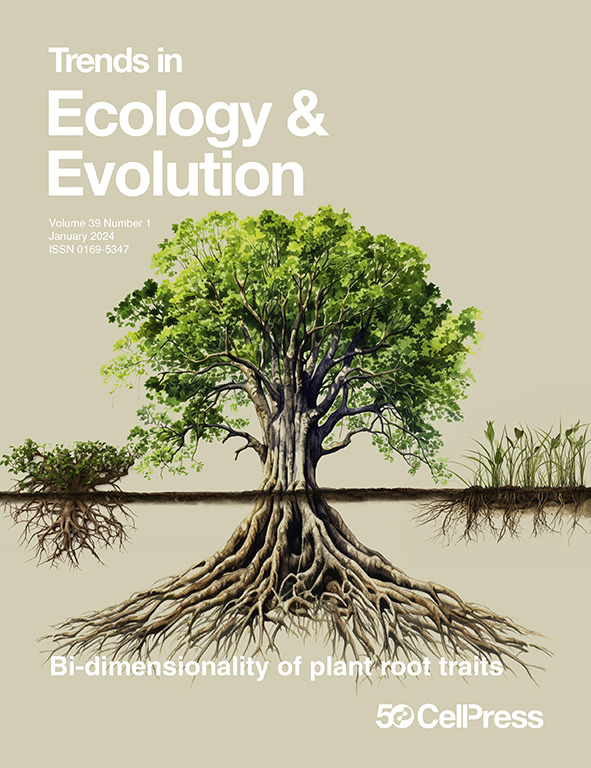逃离敌人增强入侵者的相互作用:代谢物的作用。
IF 17.3
1区 生物学
Q1 ECOLOGY
Trends in ecology & evolution
Pub Date : 2025-10-01
Epub Date: 2025-08-26
DOI:10.1016/j.tree.2025.08.001
引用次数: 0
摘要
非本地植物通常通过逃避天敌和在新的范围内形成互惠关系而胜过本地植物。然而,联系这些相互作用的因果关系和机制在很大程度上仍不清楚。代谢物的再分配可能在非本地植物拮抗和互惠相互作用之间的生态和进化转变中起着至关重要的作用。本文章由计算机程序翻译,如有差异,请以英文原文为准。
Escaping enemies enhances invader mutualisms: role of metabolites.
Non-native plants often outperform native plants by escaping natural enemies and forming mutualistic relationships in new ranges. However, the causal relationships and mechanisms linking these interactions remain largely unclear. Metabolite reallocation may play a crucial role in linking ecological and evolutionary shifts between antagonistic and mutualistic interactions of non-native plants.
求助全文
通过发布文献求助,成功后即可免费获取论文全文。
去求助
来源期刊

Trends in ecology & evolution
生物-进化生物学
CiteScore
26.50
自引率
3.00%
发文量
178
审稿时长
6-12 weeks
期刊介绍:
Trends in Ecology & Evolution (TREE) is a comprehensive journal featuring polished, concise, and readable reviews, opinions, and letters in all areas of ecology and evolutionary science. Catering to researchers, lecturers, teachers, field workers, and students, it serves as a valuable source of information. The journal keeps scientists informed about new developments and ideas across the spectrum of ecology and evolutionary biology, spanning from pure to applied and molecular to global perspectives. In the face of global environmental change, Trends in Ecology & Evolution plays a crucial role in covering all significant issues concerning organisms and their environments, making it a major forum for life scientists.
 求助内容:
求助内容: 应助结果提醒方式:
应助结果提醒方式:


